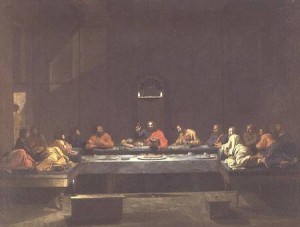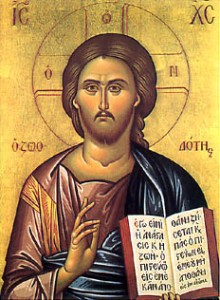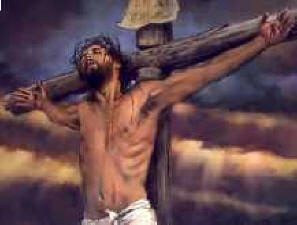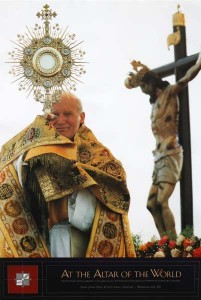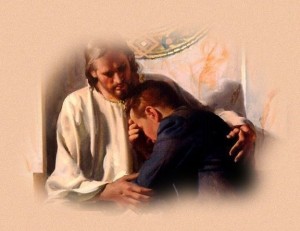
The Human Heart (Chapter Ten)
The heart is deceitful above all things, and desperately wicked: who can know it? (Jer. 17:9 KJV).
Our Hearts
Chapter ten of Roy Hession’s’ The Calvary Road addresses the human heart. A heart affected by the Fall is deceitful, conniving, prideful, and defensive (Mark 7:21-22). We protest as innocent when God reveals, convicts, and corrects the foolishness conceived within our hearts. We deny, obfuscate, and protest when our actions manifest our selfishness to others. “How often have not we, too, protested our innocence on the many occasions when God has been convicting others, and when He has wanted to convict us too” (pg. 108). We cover up our sinful struggles assuming that if we do not confess our moral failings, then God will not know about our sinful indiscretions (Ezek. 21:24).
Cover-Up
We do not confess our failures. We worry that if others know, then God will know, how terrible we really are on the inside. We assume that God will reject us if our secret sins are exposed. We avoid being honest with God and ourselves for fear that love and forgiveness will not be found if the true condition of hearts were known. We wrongly assume that God’s love is conditional based on our good behavior. Therefore, we do not call sin, “sin.” We protest our innocence even though we know that our lives do not measure up to God’s holy standards. One more sin, one more failure, one more shortcoming, we cannot and will not admit. Our failures overwhelm us for we did not have the willpower or the energy to fix it (1 John 1:8).
Defensive
God has said that we are self-centered, prideful, and dishonest, yet we continue to defend ourselves. Not only are we dishonest with God, we defend our friends, and loved ones from the Holy Spirit’s conviction as well.
There is yet another error we fall into, when we are not willing to recognize the truth of what God says of the human heart. Not only do we protest our own innocence, but we often protest the innocence of our loved ones. We hate to see them being convicted and humbled and we hasten to defend them. We do not want them to confess anything. We are not only living in a realm of illusion about ourselves, but about them too, and we fear to have it shattered. But we are only defending them against God – making God a liar on their behalf, as we do on our own, and keeping them from entering into blessing, as we do ourselves (pg. 110).
Righteousness of Christ
We assume that our performance of the Christian life is the measure by which God accepts us into his kingdom. We are sure that we have forfeited God’s acceptance by our disobedience. Our hearts condemns us, therefore we assume that we are condemned by God. However, one truth stands forth above all others for us as believers: the only righteousness that exists in our lives is the righteousness of Christ. Christ’s righteousness was imputed (and imparted) to us when we believed that Christ’s terrible death on the Cross was punishment for our sin (Gal. 3:10-14).
Christians are not made righteous by doing righteous things, but being made righteous by faith in Christ, they do righteous things.
[Martin Luther, Commentary on Galatians, CD-Rom (Simpsonville SC: Christian Classics Foundation, 1996), 3:11.]
The Great Exchange
We received God’s forgiveness and Christ’s righteousness not based on our personal performance, but because of Christ’s beautiful performance on the Cross. This beautiful exchange of my sin for his righteousness is the Gospel (2 Cor. 5:21).
The simple truth is that the only beautiful thing about the Christian is Jesus Christ. God wants us to recognize that fact as true in our experience, so that in true brokenness and self-despair we shall allow Jesus Christ to be our righteousness and holiness and all in all – and that is victory (pg. 107).
This wonderful exchanged is the one-sided trade of my sins, inadequacies, and numerous failings for Christ’s forgiveness, life-sufficiency, and overcoming victory. Ultimately, the greatest of all exchanges is Jesus Christ, the one who is fully man and fully God, truly innocent and without sin, taking upon himself at Golgotha all my selfishness, rebellion, brokenness, and hatred by substituting his righteousness, forgiveness, restoration and love. We can live the exchanged life because Christ by his gracious grace made the Great Exchange of my sin for his righteousness on the Cross (Gal. 2:20).
Abundant Grace
Because of the Cross, our lives are lived in a state of grace. We receive all the blessings of Christ’s obedience as if these great acts were our own. Because of grace, the Christian life is not a performance based on moralism and legalism, but a life lived in God’s acceptance.
No one can understand the message of Scripture who does not know the meaning of grace. The God of the Bible is ‘the God of all grace’ (1 Pet. 5:10). Grace is love, but love of a special sort. It is love which stoops and sacrifices and serves, love which is kind to the unkind, and generous to the ungrateful and undeserving. Grace is God’s free and unmerited favor, loving the unlovable, seeking the fugitive, rescuing the hopeless, and lifting the beggar from the dunghill to make him sit among princes.
[John Stott, Understanding the Bible, Revised (London: Scripture Union, 1984), 127.]
Since we are saved by grace and not by our performance, we are now free to be brutally honest with God (Eph. 2:8-9). We can say with David,
Against Thee, Thee only, have I sinned and done this evil in Thy sight, that Thou mightest be justified when Thou speakest and be clear when Thou judgest” (Psalm 51:4 KJV). Let us not fear then, to make such a confession where God convicts us that we must, thinking that it will “let Jesus down.” Rather the reverse is true, for out of such confession God gets glory, for we declare Him to be right (pg. 112).
The Gospel for Everyday
We learn to apply the gospel not only to my salvation experience, but also to my on-going growth in Christ (Rom. 8:1-4). As Jerry Bridges has noted,
The gospel applied every day to our hearts, frees us to be brutally honest with ourselves and with God. The assurance of His total forgiveness through Christ’s blood means that we don’t have to play defensive games anymore. We don’t have to rationalize and excuse our sins. We can say that we told a lie instead of continuing to blame others for our emotional distress. We can call sin exactly what it is, however ugly and shameful it may be, because we know Jesus bore that sin in His body on the cross. We have no reason to hide from our sins anymore.
[Jerry Bridges, Holiness Day by Day (Colorado Springs, CO: NavPress, 2008), 25.]
Brokenness Though the Cross
Thank God, we know longer have to pretend, cover up or hide from our sins and failures. We no longer have to fake a victory that does not exist. We no longer have to act holy when we know that we are behaving badly. Because of the Cross, we can come to a place of brokenness–a place where all my sins can be washed away by the blood of the Lamb.
A man never comes to this position of brokenness, but God shows him the Divine Lamb on Calvary‘s Cross, putting away his sin by the shedding of His Blood. The God who declares beforehand what we are, provides beforehand for our sin. Jesus was the Lamb slain for our sins from the foundation of the world. In Him, who bore them in meekness, my sins are finished. And as I, in true brokenness, confess them, and put my faith in His Blood, they are cleansed and gone. Peace with God then comes into my heart, fellowship with God is immediately restored, and I walk with Him in white (pg. 113).
With this post, we conclude our study of personal revival as taught by Roy Hession in his classic work, The Calvary Road.



